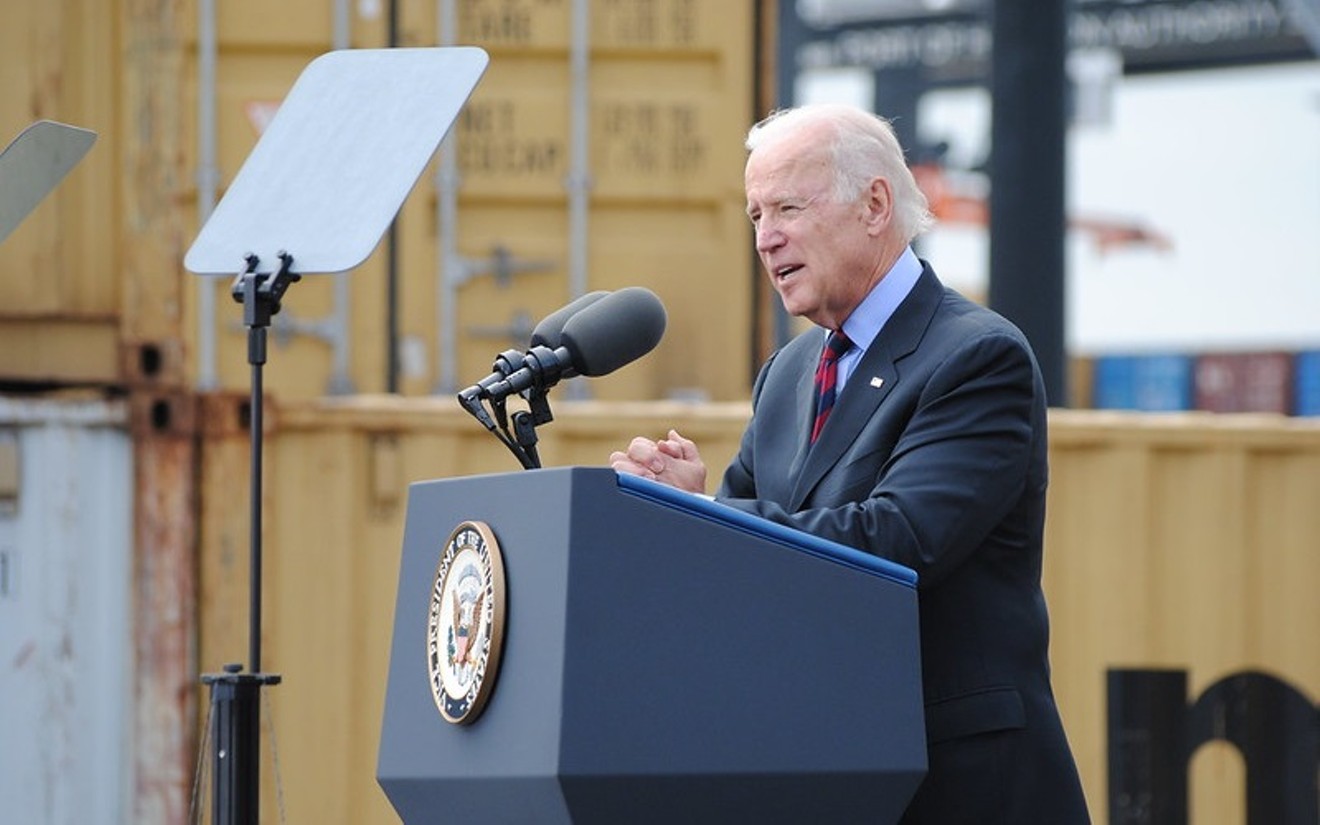This week, President Joe Biden unveiled a plan for student loan forgiveness to be enacted entirely under the powers of the executive branch. While the $10,000 loan forgiveness (plus another $10,000 for Pell Grant recipients) got all the headlines, other aspects will have potentially life-changing benefits for borrowers.
These include capping the maximum amount in an income-driven payment plan at 5 percent of monthly discretionary income and halting interest when people don’t miss payments. That latter one is a huge game changer since usurious interest rates have locked many borrowers in a never ending cycle of increasing debt.
However, it is a far cry from the total forgiveness of undergraduate debt that Biden promised on the campaign trail. This has a lot of folks on the left incensed that Biden has made only a token gesture on an issue that is very important to his base. I’ve lost count of the number of people on Twitter who are (wrongly) convinced that the president could simply wipe out all debt tomorrow with a single signature. The implication is that since he has not done so, he doesn’t take the issue seriously.
As usual, nothing is as simple as a tweet makes it out to be. Biden may have fixed one aspect of the problem with presidential power, but the other will require Congress. More than that, it will require 60 members of the Senate as the issue is too far outside a budget reconciliation to ever be approved for that process.
Let’s say for a second that Biden did wipe out all student debt next week by executive order. Every. Single. Drop. Millions of Americans are free from their payments. Huzzah!
What happens next semester?
People are enrolled in school right now. Millions of kids graduate high school every year and start matriculating to colleges and universities. Those educations will have tuitions, and those tuitions will have to be paid. Does the loan process continue, with us just blanket eliminating all debt every generation after everyone has been paying into the system because of an uncertain future? What does the FASFA (Free Application for Federal Student Aid) system look like for the next batch of students?
These are questions that have to be answered concurrently with student debt reform. Conservatives have a point when they say mass forgiveness will change the way that people take on debt to pay for college. A weird system where people are fleeced and scolded for payments for 20 years before having the whole thing scrapped in a quirky political move is a very American solution, but that doesn’t make it a good one.
Biden may have fixed the problem of interest, but he as president can do nothing about reining in the price of state college education. The cost of tuition has risen from $10,231 annually in 1980 to $28,775 in 2019, a 180 percent increase. At the University of Houston, tuition prices have risen 33.83 percent in the last ten years. Since 1980, wages for college graduates have risen only 15.9 percent, meaning that each generation has had to pay more of their paycheck to afford college. Forgiving debt without addressing the out of control tuition cost is like trying to fix a cut that needs stitches with a bandage. It’s better than nothing, but it won’t work forever.
Biden’s stalled Build Back Better plan would have made community college free for everyone in America. That would have dramatically cut the full cost of an education. The College for All Act currently languishing in the House and Senate would eliminate tuition at public schools for everyone making under $125,000 annually. The bill would be paid for by a tax on stock and bond trades. Or, we could build a federal university system that doesn’t require state money like Freddie DeBoer suggests, an institution that can be used to lower prices the way Medicare does with drugs.
Naturally, Republican opposition to these ideas will be high. The inevitable challenge from states like Texas if such a bill was passed is certain to make it to the Supreme Court, where the future is very dicey indeed these days. It’s understandable to be frustrated with these roadblocks and want Biden to wield power like a king to fix it.
That is not going to happen, and it shouldn’t. Constantly ceding power to the president without congressional oversight has not brought the country to good places. Legislation is ultimately going to be necessary for progress. That’s something we should all keep in mind as the midterms approach.
Support Us
Houston's independent source of
local news and culture
account
- Welcome,
Insider - Login
- My Account
- My Newsletters
- Contribute
- Contact Us
- Sign out

Then VP Joe Biden at the Port of Houston in 2013.
Photo by the U.S. Army Corps of Engineers/Flickr
[
{
"name": "Related Stories / Support Us Combo",
"component": "11591218",
"insertPoint": "4",
"requiredCountToDisplay": "4"
},{
"name": "Air - Billboard - Inline Content",
"component": "11591214",
"insertPoint": "2/3",
"requiredCountToDisplay": "7"
},{
"name": "R1 - Beta - Mobile Only",
"component": "12287027",
"insertPoint": "8",
"requiredCountToDisplay": "8"
},{
"name": "Air - MediumRectangle - Inline Content - Mobile Display Size 2",
"component": "11591215",
"insertPoint": "12",
"requiredCountToDisplay": "12"
},{
"name": "Air - MediumRectangle - Inline Content - Mobile Display Size 2",
"component": "11591215",
"insertPoint": "4th",
"startingPoint": "16",
"requiredCountToDisplay": "12"
}
]
KEEP THE HOUSTON PRESS FREE...
Since we started the Houston Press, it has been defined as the free, independent voice of Houston, and we'd like to keep it that way. With local media under siege, it's more important than ever for us to rally support behind funding our local journalism. You can help by participating in our "I Support" program, allowing us to keep offering readers access to our incisive coverage of local news, food and culture with no paywalls.
Jef Rouner (not cis, he/him) is a contributing writer who covers politics, pop culture, social justice, video games, and online behavior. He is often a professional annoyance to the ignorant and hurtful.
Contact:
Jef Rouner
Trending News
- Celebrity Rosters Announced for J.J. Watt Charity Softball Game
- Avoid Highway 90 Like the Plague This Week
- Rockets 2023-24 Report Card: The Starters
-
Sponsored Content From: [%sponsoredBy%]
[%title%]

Don't Miss Out
SIGN UP for the latest
news, free stuff and more!
Become a member to support the independent voice of Houston
and help keep the future of the Houston Press FREE
Use of this website constitutes acceptance of our
terms of use,
our cookies policy, and our
privacy policy
The Houston Press may earn a portion of sales from products & services purchased through links on our site from our
affiliate partners.
©2024
Houston Press, LP. All rights reserved.





